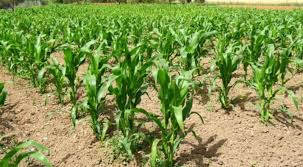Farmers Earning Money
Farmers can earn money in several ways, depending on the type of farming they engage in and the local market conditions. Here are a few examples:
Selling crops: Farmers can grow crops like vegetables, fruits, grains, and pulses and sell them in the local market or to wholesalers. The price they receive for their produce depends on the demand and supply in the market, quality of the produce, and transportation costs.
Livestock farming: Farmers can raise livestock like cows, chickens, pigs, and goats and sell them for meat, milk, or eggs. They can also sell the animals themselves for breeding or sale.
Value-added products: Farmers can also create value-added products from their crops or livestock, such as cheese, yogurt, jams, or pickles. These products can fetch a higher price in the market.
Farm tourism: Some farmers can also generate income by opening up their farms for tourism. They can provide guided tours, offer farm stays or camping facilities, or sell farm-made products to visitors.
Contract farming: Farmers can enter into contracts with companies or wholesalers to produce crops or livestock for them. This provides them with a guaranteed market and price for their produce.
Organic farming: Farmers can switch to organic farming, which involves using natural methods to grow crops or raise livestock without synthetic pesticides, fertilizers, or growth hormones. Organic produce can fetch a higher price in the market due to its perceived health and environmental benefits.
Agricultural services: Farmers can provide services like plowing, irrigation, harvesting, or transportation to other farmers in the area. This can provide them with an additional source of income while also helping out their neighbors.
Government schemes: Many governments offer schemes or subsidies to farmers to encourage agriculture and rural development. These can include loans, crop insurance, or grants for farm infrastructure or equipment.
It's important to note that farming can be a challenging and unpredictable business, with factors like weather, pests, and market fluctuations affecting the yield and income. To be successful, farmers need to have a good understanding of their local market, be adaptable to changing conditions, and invest in their farm's infrastructure and technology.











Comments
Post a Comment